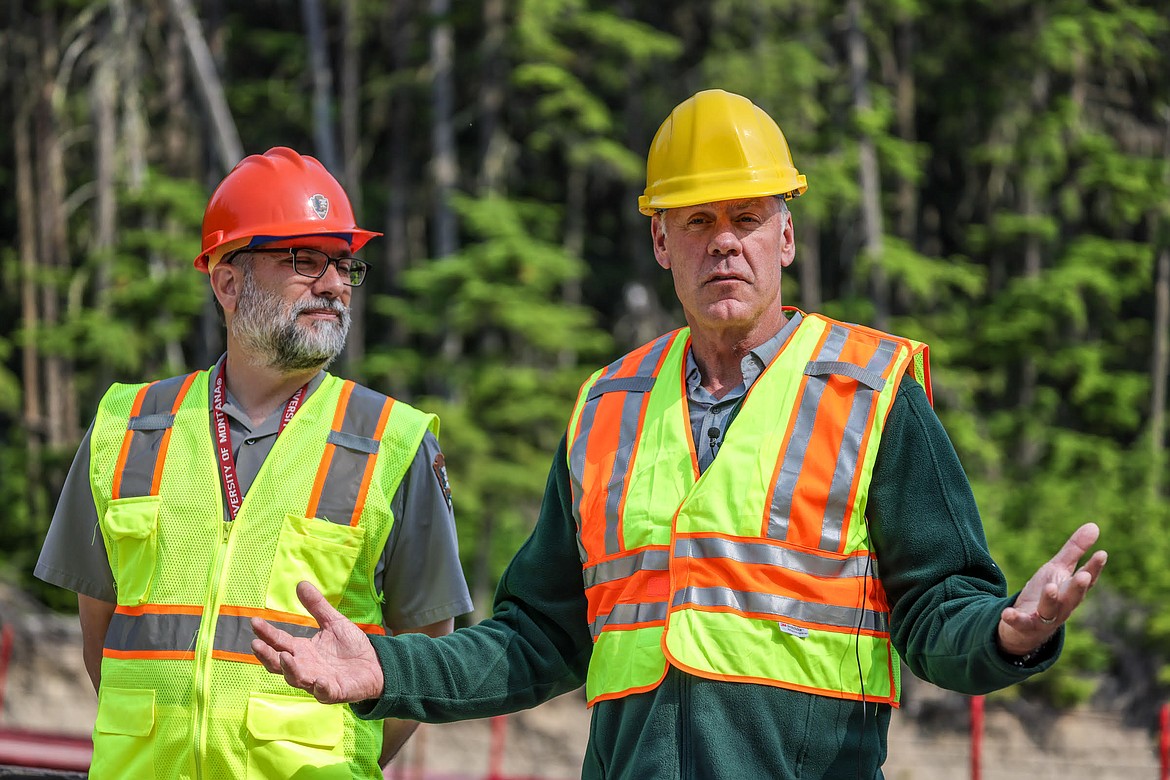Zinke should pause effort to derail Glacier reservations
Glacier National Park’s ticketed entry system has become the subject of regular lashings from Montana Congressman Ryan Zinke, even as Glacier officials tell him it’s a necessity given the millions of visitors who want to share in Montana’s crown jewel each summer.
Zinke’s campaign started in March when the first batch of 2023 Going-to-the-Sun Road reservations were made available. The congressman said he came up empty handed and posted to Twitter a screenshot of his failed attempt to reserve a ticket about an hour after the online reservation window opened.
“The entire reservation system is a deliberate strategy to keep the public out of parks and this website is a total scam,” the Republican claimed.
Glacier officials quickly countered that approximately 53% of tickets for May and June went to Montanans, making Montana the state with the highest percentage of reservations. What’s more, locals could also secure day-of reservations or hit the entry gate before 6 a.m. or after 3 p.m. if they missed out on the early release tickets.
Still, Zinke pressed on, next taking aim at Booz Allen Hamilton Inc., the firm that holds a $140 million contract to manage recreation.gov, the website where people can secure reservations for national parks. Zinke, who previously served as secretary of the Interior under former President Donald Trump, asked the National Park Service to probe the details of that lucrative arrangement while prodding Interior to abruptly end the ticketed entry system until an investigation was complete.
Then last week, he took his ambitions a step further by introducing an amendment to an Interior funding bill that would remove the ticketed-entry system outright.
All the while, Glacier officials have continued to assert that entry reservations are a must. Unfettered summer access will only lead to traffic jams at entry points and frustrated visitors circling trailhead parking lots like hungry hawks.
In a letter sent to Montana’s congressional delegation and obtained by the Daily Inter Lake earlier this month, Glacier Superintendent David Roemer countered that the reservation system is actually improving visitor experiences. The online ticketing, while admittedly imperfect, is a trade-off against “an unmanaged system where visitors may arrive to find overcrowded park roads and parking, or possibly find a temporary closure due to unsafe congestion,” Roemer wrote.
The obvious resolution to this conflict lies in Glacier’s public transit system, or lack thereof.
Among Zinke’s complaints is that the park’s current shuttle system isn’t up to the task, nor worthy of Glacier’s grandeur, and he’s correct on both accounts.
Anyone who’s been left waiting at a shuttle stop for hours on end knows the frustration of relying on Glacier’s inadequate transit program. There aren’t enough shuttles to meet demand, and the thrill of the Sun Road is lost within the confinements of a stuffy bus packed with sweaty strangers.
Unfortunately, Zinke’s been overtly vague on his transit vision, often telling reporters that it should be an “experience” without offering details. Does he envision automated shuttles similar to what’s been tested at Yellowstone National Park? Is he keen on an electric train or monorail, or possibly a gondola? His ambiguity lets the imagination run wild.
Zinke needs to be a straight shooter and share in detail what he has in mind for Glacier’s public transit experience. Call off the attacks on the ticketed-entry system and put forth a complete blueprint and budget on how to alleviate the free-for-all that inevitably happens with unregulated entry.
While well intended, the congressman is jumping the gun in his pursuit to derail ticketed entry without first addressing public transit shortfalls and related crowd control measures.


